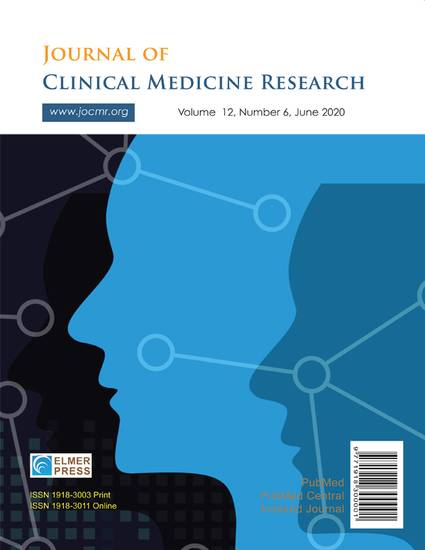
Article
Association Between Obesity and Cancer Mortality: An Internal Medicine Outpatient Clinic Perspective
J Clin Med Res
(2021)
Abstract
Background: Obesity is one of the leading preventable causes of cancer that has a causal relationship with cancers of esophagus, breast and colon. Paradoxically, there are studies demonstrating that obesity is associated with improved survival in cancer patients. The aim of our study was to investigate the association of obesity and cancer mortality in adult patients.
Methods: Retrospective medical record review of 784 adult patients was performed who had a diagnosis of cancer and who were seen in our outpatient Internal Medicine Clinic between January 1, 2019 and December 31, 2019.
Results: Forty-three (5.2%) patients were cancer non-survivors and 741 (94.8%) were cancer survivors. The mean age of the cancer non-survivors group was significantly higher than that of the cancer survivors (78.7 vs. 68.0 years, respectively; P < 0.001). For every unit increase in age, there was 7.6% increased odds of cancer death (95% confidence interval (CI): 3-12%) (P = 0.001). Average body mass index (BMI) of the patients in the cancer non-survivors group was significantly lower than that of the cancer survivors group (25.0 vs. 28.1 kg/m2; P = 0.008). Non-obese patients had 4.9 times greater odds of cancer death (95% CI: 1.51 - 15.81) (P = 0.008). The mean glycosylated hemoglobin (HbA1c) was significantly higher in the cancer non-survivors group compared to the cancer survivors group (7.1% vs. 6.0%; P < 0.001), and for every unit increase in HbA1c there was 1.6 times greater odds of cancer death (95% CI: 1.14 - 2.23) (P = 0.006). Patients with peripheral artery disease (PAD) had 3.5 times greater odds of cancer death compared to those without PAD (95% CI: 1.18 - 10.19) (P = 0.023).
Conclusions: Non-obese patients with cancer had higher odds of cancer death. Rising HbA1c, increasing age, and presence of PAD were associated with increased cancer mortality.
Keywords
- Obesity; Cancer mortality; Obesity paradox
Disciplines
Publication Date
Summer July 28, 2021
DOI
10.14740/jocmr4543
Citation Information
Vede Ramdass, Elizabeth Caskey, Tammarah Sklarz, Saaniya Ajmeri, et al.. "Association Between Obesity and Cancer Mortality: An Internal Medicine Outpatient Clinic Perspective" J Clin Med Res (2021) Available at: http://works.bepress.com/satyajeet-roy/35/
